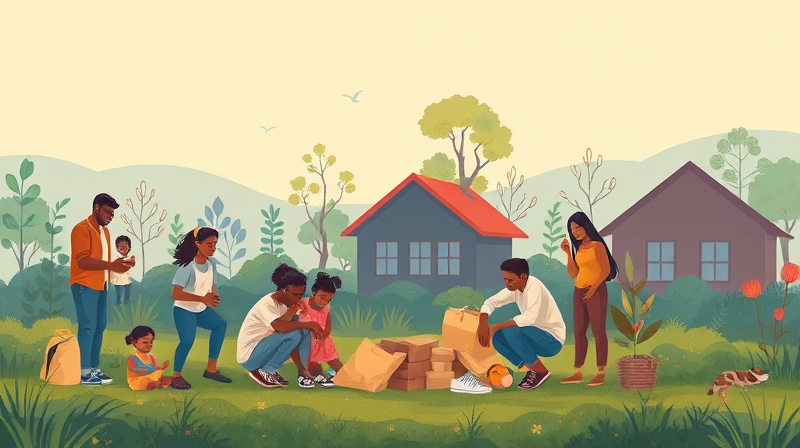Emergencies can stir up a storm of anxiety. Whether it is a natural disaster or a man-made crisis, staying informed is essential. However, excessive exposure to emergency updates might overwhelm your senses and escalate stress. This article provides practical advice to help you stay aware and manage your well-being.
Preparing Ahead of Time
Preparation is key when it comes to managing emergencies. Taking proactive steps can make you feel empowered and ready for any situation.
- Create Emergency Plans: Develop a family emergency plan tailored to the specific risks in your area, such as floods, tornadoes, or earthquakes. Include details on evacuation routes, meeting points, and important contact numbers.
- Assemble Emergency Kits: Prepare kits filled with non-perishable food, water, medications, and communication tools. Regularly check these kits to remove or update expired items.
- Engage in Drills: Practice home or community-based evacuation drills. Familiarity with these steps can build confidence and reduce panic during real situations.
Being proactive in your planning lets you face the unexpected with a clearer mind and less anxiety.
Sign Up for Reliable Alerts
Accurate and timely information is vital during emergencies. By using trusted alert systems like text-based emergency alerts, NOAA Weather Radios, or FEMA’s Preparedness App, you can remain updated without constantly consuming news feeds.
Choose systems that cater to your region. Ensure that every family member is on the list, so you all receive alerts promptly and accurately.
Limiting Overexposure to News
While keeping informed is important, overwhelming yourself with news can compound stress. Moderation is essential.
- Allocate specific times during the day to check updates.
- Trust official channels like FEMA or the local Red Cross for factual and reliable information.
- Utilize brief, clear messages and templates to prevent communication from turning into panic.
This measured approach allows you to stay updated without letting fear dictate your day.
Building Community Support
Community connections can be a valuable asset during an emergency. A united neighborhood can provide both practical assistance and emotional support.
- Encourage neighbors to join preparedness initiatives, such as Community Emergency Response Teams (CERTs).
- Check in with vulnerable neighbors and offer help where possible.
Strong relationships can ease the burden and foster resilience among community members.
Incorporating Stress-Reduction Practices
Your mental health is critical during an emergency. Integrate stress-reduction techniques into your routine to maintain calm:
- Practice mindfulness and relaxation techniques to reduce anxiety.
- Prepare clear, age-appropriate explanations for children to help them understand what is happening.
- Include your pets in emergency planning to lessen uncertainty about their care.
Adopting these methods can help preserve a sense of normalcy during challenging times.
Evaluating Your Communication Plan
Having a robust communication strategy is crucial during emergencies. Staying connected with loved ones can bring comfort and assurance.
- Create emergency contact cards.
- Establish out-of-area contacts for a reliable check-in method.
- Set protocols using emergency apps or social media groups designed for crises.
This planning ensures that, even when separated, you have a dependable way to reach each other.
Final Thoughts: Emergency preparedness should build confidence rather than cultivate fear. By taking the time to plan and curate reliable information channels, you can face emergencies with composure. Remember, a thoughtful approach to preparation not only shields your physical well-being, but also reinforces your mental resilience for a healthier, calmer tomorrow.








